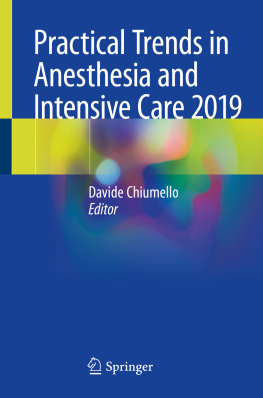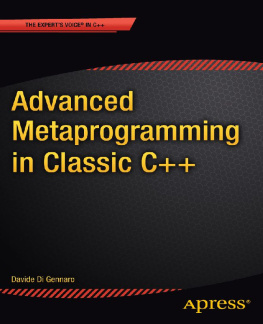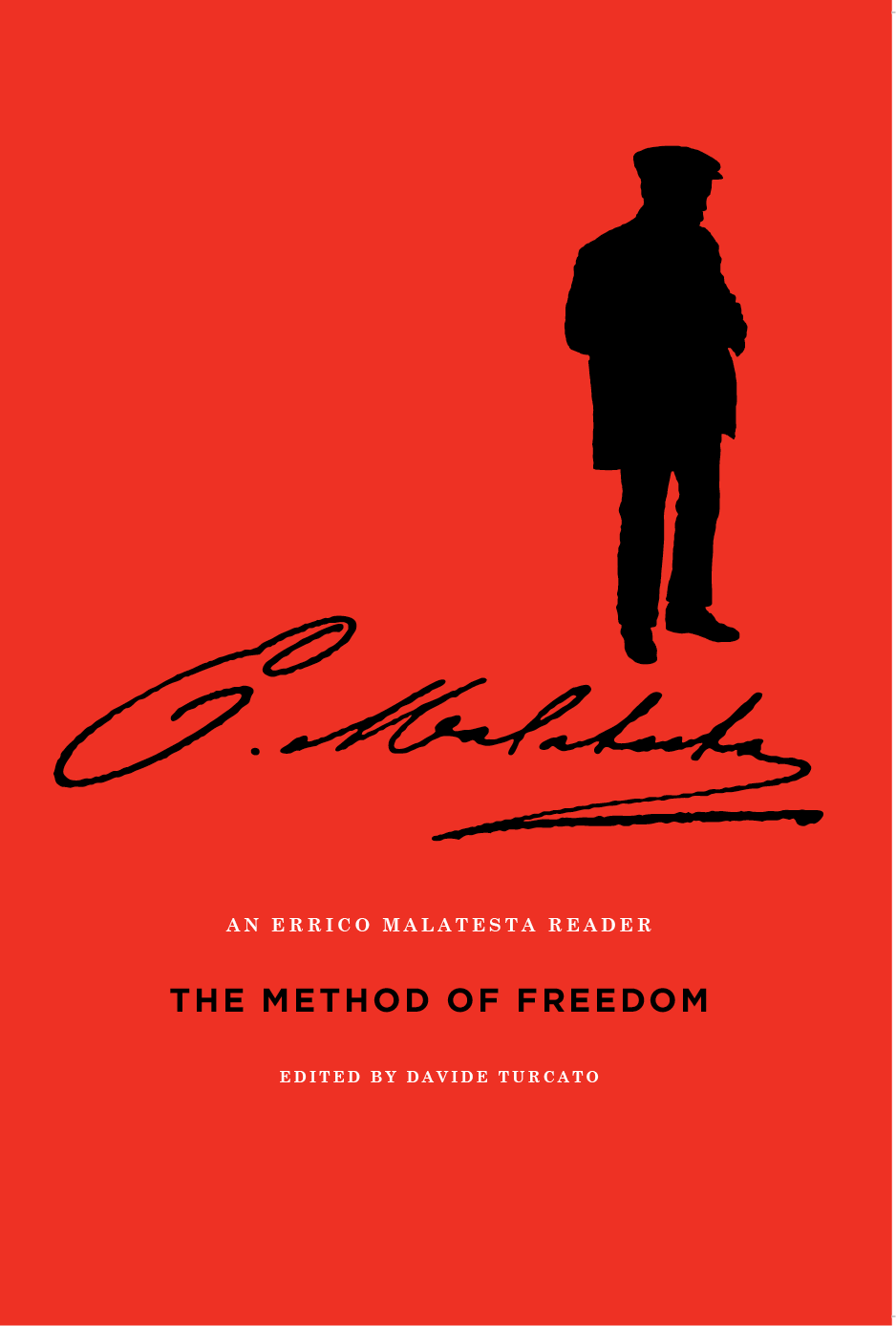Introduction, Davide Turcato
The most distinctive and universal anarchist principle is the principle of coherence between ends and means: human emancipation cannot be achieved by authoritarian means. However, the same principle could also be read in the opposite direction, though this is less frequently done: our ends should not be disconnected from our action; our ideals should not be so lofty as to make no difference to what we do here and now. The anarchist whose deeds and words have best illustrated both sides of that principlethe idealist and the pragmatist oneis Errico Malatesta.
Malatesta was born on 4 December 1853 in Santa Maria Capua Vetere. Southern Italy was then still ruled by the Bourbons, whose fall Malatesta witnessed as a child. As a young student in Naples, he adhered to republicanism, the party of revolution in Italian Risorgimento . However, under the impression of the Paris Commune in 1871 he turned to socialism, the rising gospel of social redemption, which, in Italy, was born anarchist. The next year Malatesta had his first encounter with Bakunin at the St. Imier congress, where the founding of the federalist International marked the birth of the anarchist movement. For the following six decades Malatestas name would be linked to the history of that movement. He lived most of his adult life abroad as an exile and a workman, in countries of strong Italian migration and anarchist presence: France, Belgium, Switzerland, and Egypt in 187882; Argentina in 188589; the United States in 18991900; and England, more specifically in London, in 188997, 190013, and 191419. Yet for half a century he was a protagonist of all onsets of social struggle in Italy: the Benevento uprising of 1877, one of the first instances of propaganda by the deed and one of most popular and symbolic events in the history of the anarchist movement; the bread riots of 1898, which brought him to jail and then to forced residence, from whence he escaped in 1899; the insurrectionary Red Week in 1914, when the Romagna and the Marches remained for days in the hands of anarchists, republicans, and socialists; and the red biennium of 191920, when the factory occupation seemed to bring Italy on the verge of revolution. Malatesta died in Rome on 22 July 1932, under the heel of the fascist regime, in a state of undeclared house arrest.
Thus Malatesta was portrayed by his London fellow-exile Peter Kropotkin at the turn of the twentieth century: Malatesta was a student of medicine, who had left the medical profession and also his fortune for the sake of the revolution; full of fire and intelligence, a pure idealist, who all his lifeand he is now approaching the age of fiftyhas never thought whether he would have a piece of bread for his supper and a bed for the night. Without even so much as a room that he could call his own, he would sell sherbet in the streets of London to get his living, and in the evening write brilliant articles for the Italian papers. Imprisoned in France, released, expelled, re-condemned in Italy, confined in an island, escaped, and again in Italy in disguise; always in the hottest of the struggle, whether it be in Italy or elsewhere,he has persevered in this life for thirty years in succession. And when we meet him again, released from a prison or escaped from an island, we find him just as we saw him last; always renewing the struggle, with the same love of men, the same absence of hatred toward his adversaries and jailers, the same hearty smile for a friend, the same caress for a child.
Malatesta equally contributed to the anarchist movement with his action and his thought, which he could not conceive as separate. His pamphlets Fra Contadini (Between Peasants), LAnarchia (Anarchy), and Al Caff (At the Caf) are among the greatest anarchist best-sellers of all times, with countless reprints and translations. However, his thought found expression above all in the myriads of articles scattered in the anarchist press around the world and in the numerous periodicals he edited: the two runs of La Questione Sociale , published in Florence in 188384 and in Buenos Aires in 1885; LAssociazione , which marked the beginning of Malatestas first London exile, in 188990; LAgitazione , published in Ancona in 189798, until the bread riots broke out; La Questione Sociale of Paterson, edited in 18991900 while he was in America; La Rivoluzione Sociale , appeared in London in 190203, during Malatestas second London exile; Volont , also published in Ancona, in 191314, until the Red Week; the anarchist daily Umanit Nova , in 192022; and Pensiero e Volont , edited in Rome in 192426, well after the advent of fascism. Some of these are among the most significant periodicals in the history of anarchist thought.
In his writing, Malatesta has the rare ability of being both deep and clear. This is best illustrated by an example. In the Anarchy pamphlet, which we reprint in this volume, Malatesta defines anarchy in a single sentence: A narchy, in common with socialism, has as its basis, its point of departure, its essential environment, equality of conditions ; its beacon is solidarity and freedom is its method. In its reference to the standard values of the French Revolution, galit , fraternit , and libert , the definition may seem a clich. Yet, behind its deceptive simplicity, it expresses a whole, original conception of anarchism, which rests on the role assigned to each of those standard values. Equality of conditions means common ownership of the means of production, for there cannot be equality of conditions when a class monopolizes the means of production. Thus, a socialist society is being described here. Yet socialism is not an end-point; it is just a point of departure of an open-ended process. The beacon of that process is solidarity. By assigning the drivers seat of social evolution to an intentionally pursued value Malatesta is expressing a voluntarist view, in contrast to the marxist emphasis on the development of productive forces. And by assigning that seat to solidarity he is rejecting individualism. Finally, by advocating freedom as a method Malatesta is re-asserting free initiative in contrast to authoritarian socialism. Malatesta is offering no blueprint of the future society, yet his definition is strongly characterized in terms of the process: he is describing an experimentalist, pluralist, socialist open society.
Moreover, in defining anarchy in terms of a sentiment and a methodsolidarity and freedomthat anarchists already practice here and now, Malatesta is positing continuity between the present society and the future one. And since that sentiment and that method are conscious choices of each individual, Malatestas is a gradualist view of anarchy: the more people will embrace that sentiment and that value, the more broadly anarchy will be realized. In fact, immediately after the above definition, Malatesta explains that anarchy is not perfection, it is not the absolute ideal which like the horizon recedes as fast as we approach it; but it is the way open to all progress and all improvements for the benefit of everybody.
We see here how coherence between ends and means works both ways for Malatesta. When ends are so abstract as to have no link with our present action, everybody can safely agree on those ends. Rather, Malatesta writes, it is the method which above all distinguishes between the parties and determines their historical importance. Apart from the method, he adds, they all talk of wanting the wellbeing of humanity. Therefore, one must consider anarchy above all as a method. The distinctive method that anarchists have to offer is the method of freedom.
Malatesta explicitly introduced concepts like anarchist gradualism only in his late writings. However, their seeds can be detected much earlier. A deep coherence pervades Malatestas entire action and thought, at the same time that both action and thought evolved under the impulse of experience. We have aimed to capture both Malatestas coherence and pragmatism in this collection, which differs from previous ones in many respects. Since anthologies of Malatestas writings, such as Vernon Richardss excellent Life and Ideas , usually have a thematic structure, they tend to give a flat and somewhat frozen image of Malatestas ideas. Instead, for a man who was active in the anarchist movement for sixty years, the temporal dimension is crucial. We have added that missing dimension by giving our collection a chronological structure. Our aim is not, or not only, to present the best of Malatesta, but to document his entire trajectory. In this way we illustrate how different tactics were advocated at different times and make mature ideas better understood by putting them in perspective. This involves including early writings, which the late Malatesta might no longer have fully subscribed to, and documenting not only the high moments, but also the more obscure transition phases, such as the years 1894 and 1899, which constitute fundamental turning points in Malatestas theory and tactics. We have also aimed to represent Malatestas full range of writings, from pamphlets to long theoretical articles, to occasional but illuminating arguments. All writings are presented in their entirety.










